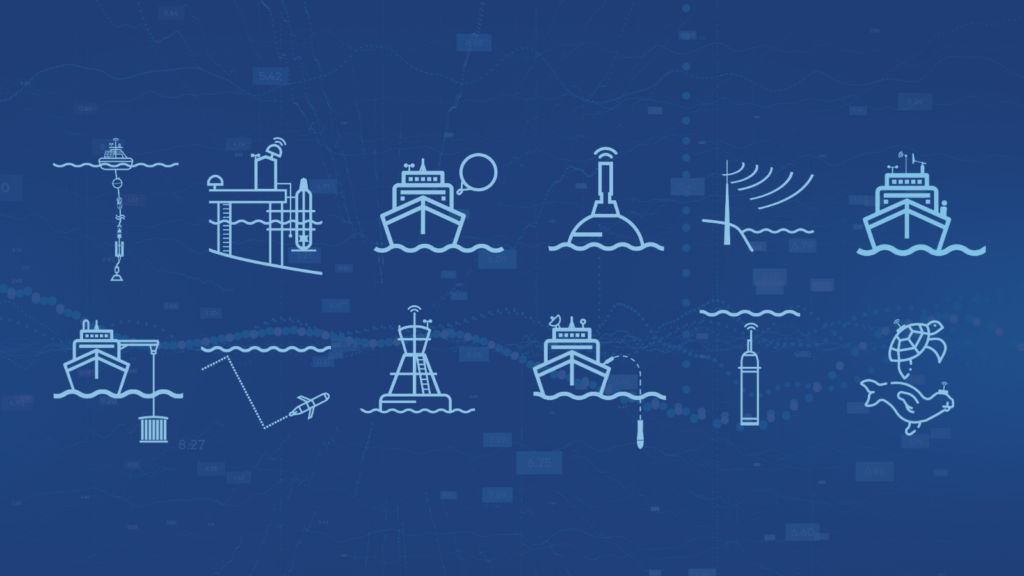Ensuring that all ocean data under the Global Ocean Observing System (GOOS) is findable, accessible, interoperable and reusable requires improved data and metadata flows. To achieve this, the GOOS Observations Coordination Group (OCG) has just released its Cross-Network Data Implementation Strategy.

Data management and data flows are key components of both the GOOS 2030 Strategy and its Roadmap. The GOOS 2030 Strategy is a “call to action for ocean observation” and, in combination with the Strategy Roadmap, looks to define a path forward to meet increased societal needs for a fully integrated global ocean observing system that will provide the critical ocean information required for policymakers and the public and private sectors to adapt to and mitigate climate change, protect ocean health and support sustainable growth and blue economy. This path includes improving the data flow and interoperability among the global in situ ocean observing networks.
The GOOS Observations Coordination Group (OCG) works to coordinate the activities of the active global ocean observing networks. These networks are the backbone of the global ocean observing system and deliver hundreds of thousands of observations every day.
The ocean observing networks under the OCG umbrella are heterogeneous and operate different platforms on varying space and timescales, collecting multiple Essential Ocean Variables (EOVs). Yet, despite this heterogeneity, one of the core Strategic Objectives of the GOOS 2030 Strategy is for all ocean data under GOOS to be FAIR (findable, accessible, interoperable and reusable) and to reach its users with appropriate latency and quality.
With this increased focus on improving data and metadata flows, the GOOS Observations Coordination Group (OCG) has released its Cross-Network Data Implementation Strategy. The goal of this data implementation strategy is to improve integration of data, metadata and data access services across the GOOS OCG global in situ networks.
Recognizing the inherently distributed nature of the current global ocean data flows, this strategy provides a framework to enhance discovery and access through federation of these distributed data nodes. This federated strategy, in combination with high quality metadata, will underpin the future growth of the digital ocean ecosystem by better supporting discovery and access, as well as harvesting of data and metadata for future digital twins, AI/ML applications and better tracking of ocean information and knowledge.
This improved framework will also strengthen connections with other cross-GOOS activities, such as the Biology and Ecosystems community, the IODE’s Ocean Data and Information System (ODIS), as well as the myriad of UN Ocean Decade programs and activities. The GOOS OCG looks forward to implementing this strategy with its partner networks over the coming months.
Access the GOOS Observations Coordination Group Cross-Network Data Implementation Strategy here.
—
About GOOS OCG:
The Observations Coordination Group (OCG) works to guide and strengthen the implementation of the Global Ocean Observing System (GOOS) through identifying, coordinating and developing relevant initiatives across the global ocean observing networks. The vision is to support the delivery of a fit-for-purpose, integrated, and coherent Global Ocean Observing System of networks.
About GOOS:
The Global Ocean Observing System (GOOS) is the global home of ocean observing expertise and systematic coordination. We lead and support a community of international, regional and national ocean observing programmes, governments, UN agencies, research organizations and individual scientists. Our Core Team of expert panels, observing networks, alliances and projects, supported by the GOOS Office, is in touch with ocean observing and forecasting around the world. We are a programme led by the Intergovernmental Oceanographic Commission (IOC) of UNESCO, with UN and science co-sponsors: World Meteorological Organization (WMO), UN Environmental Programme (UNEP) and the International Science Council (ISC).
